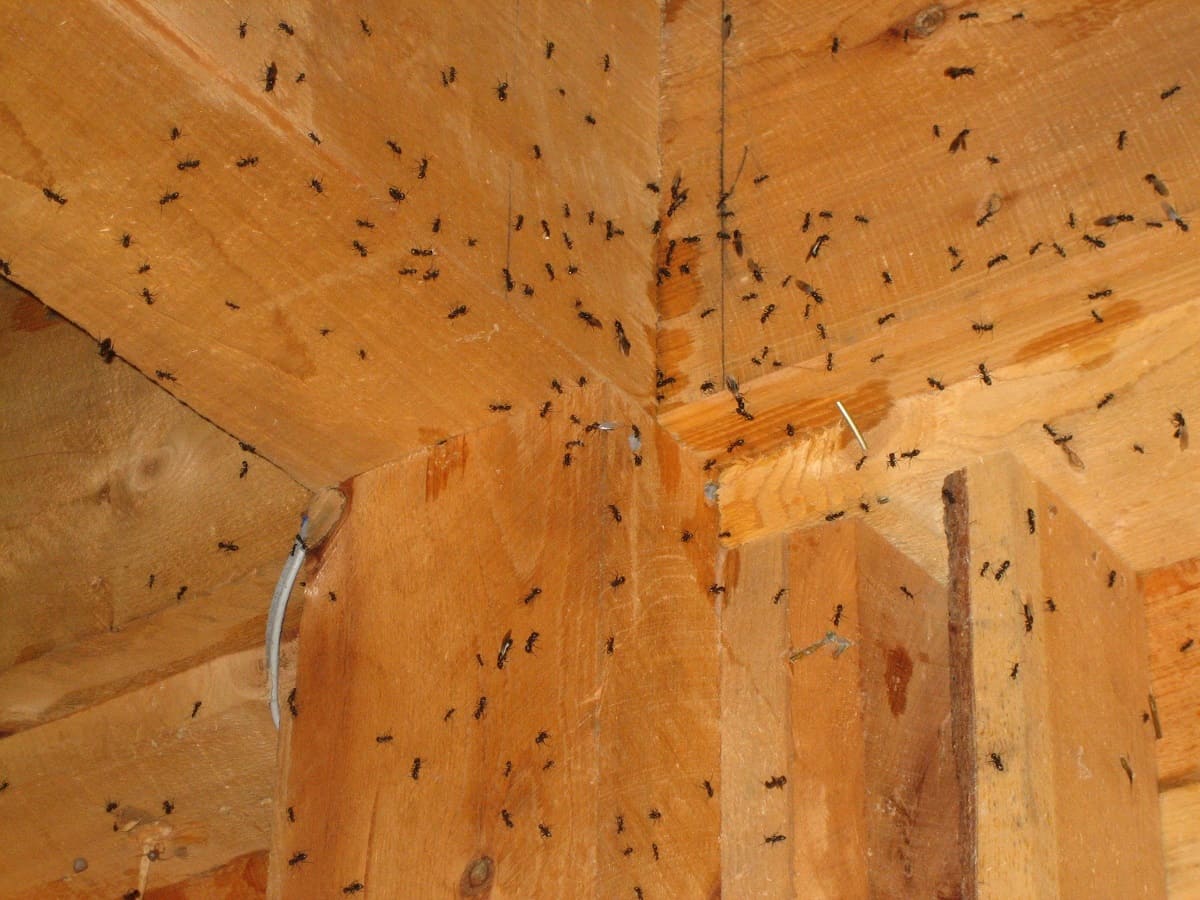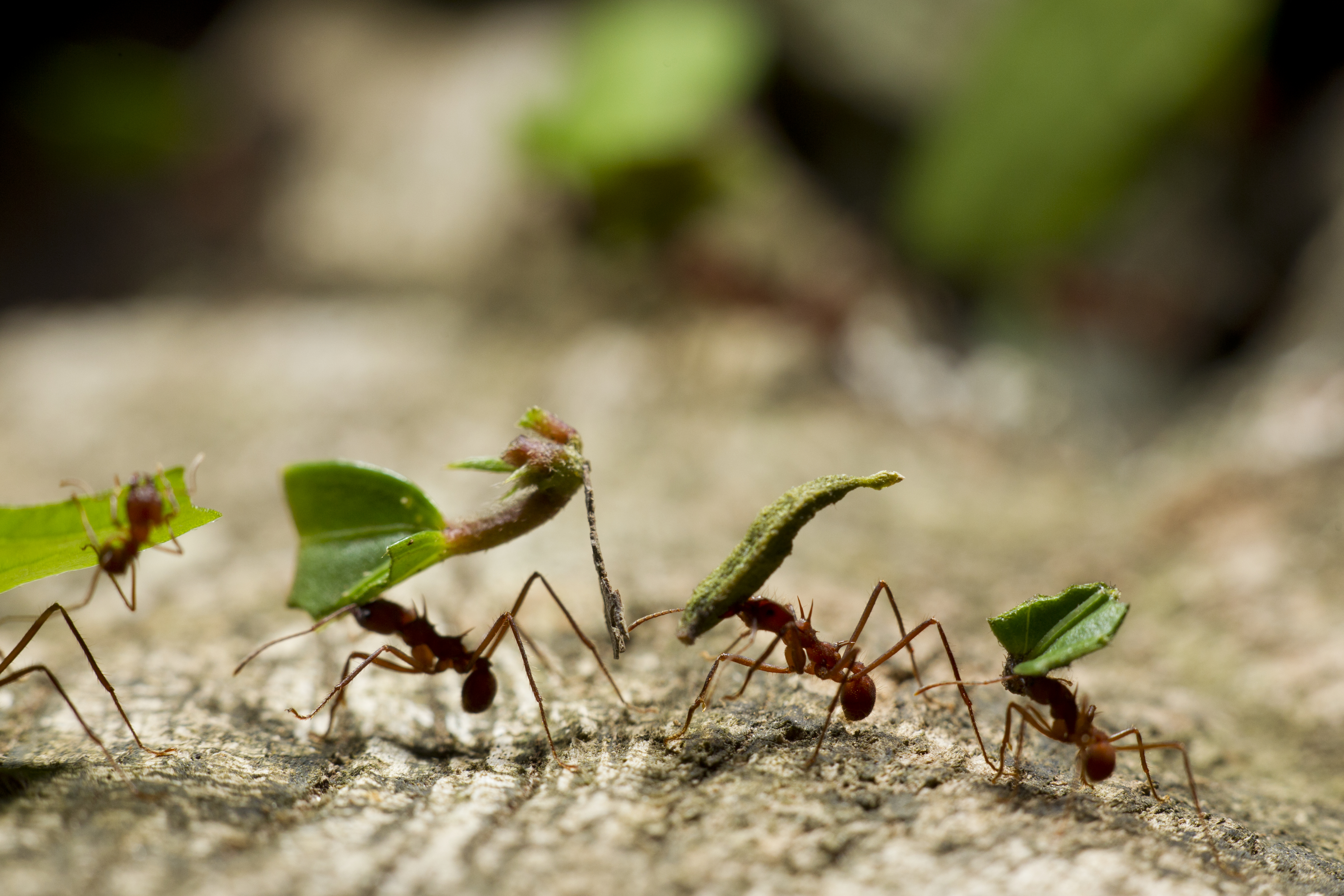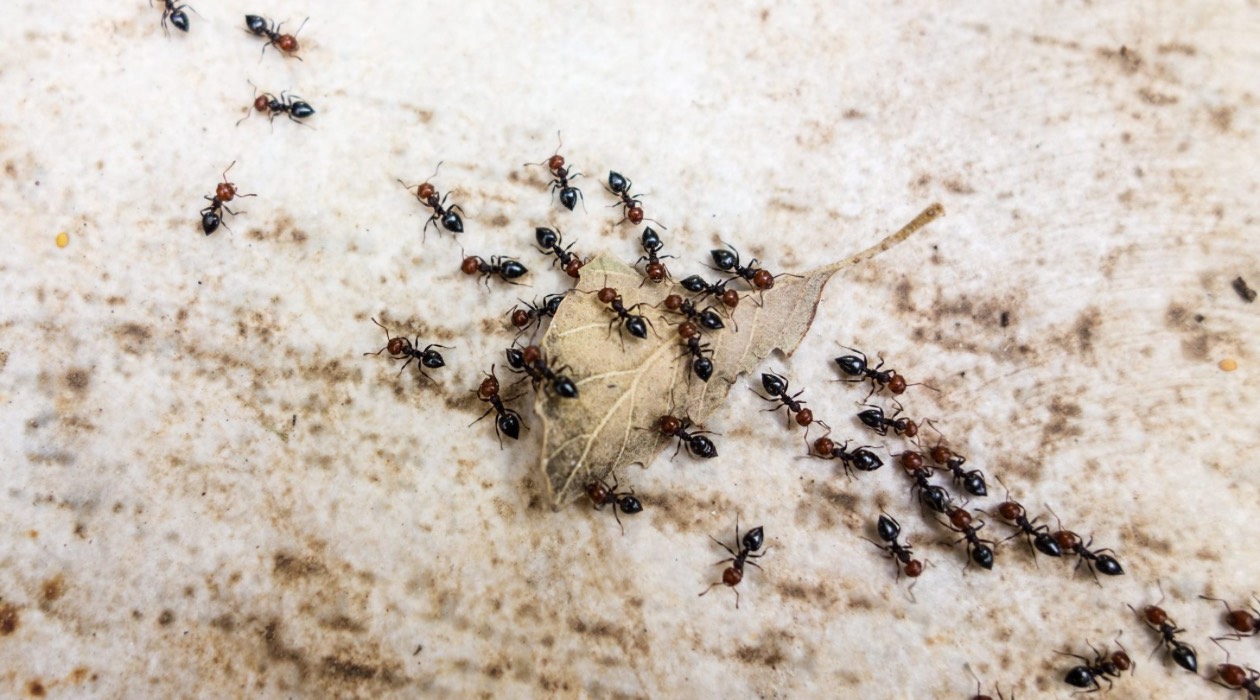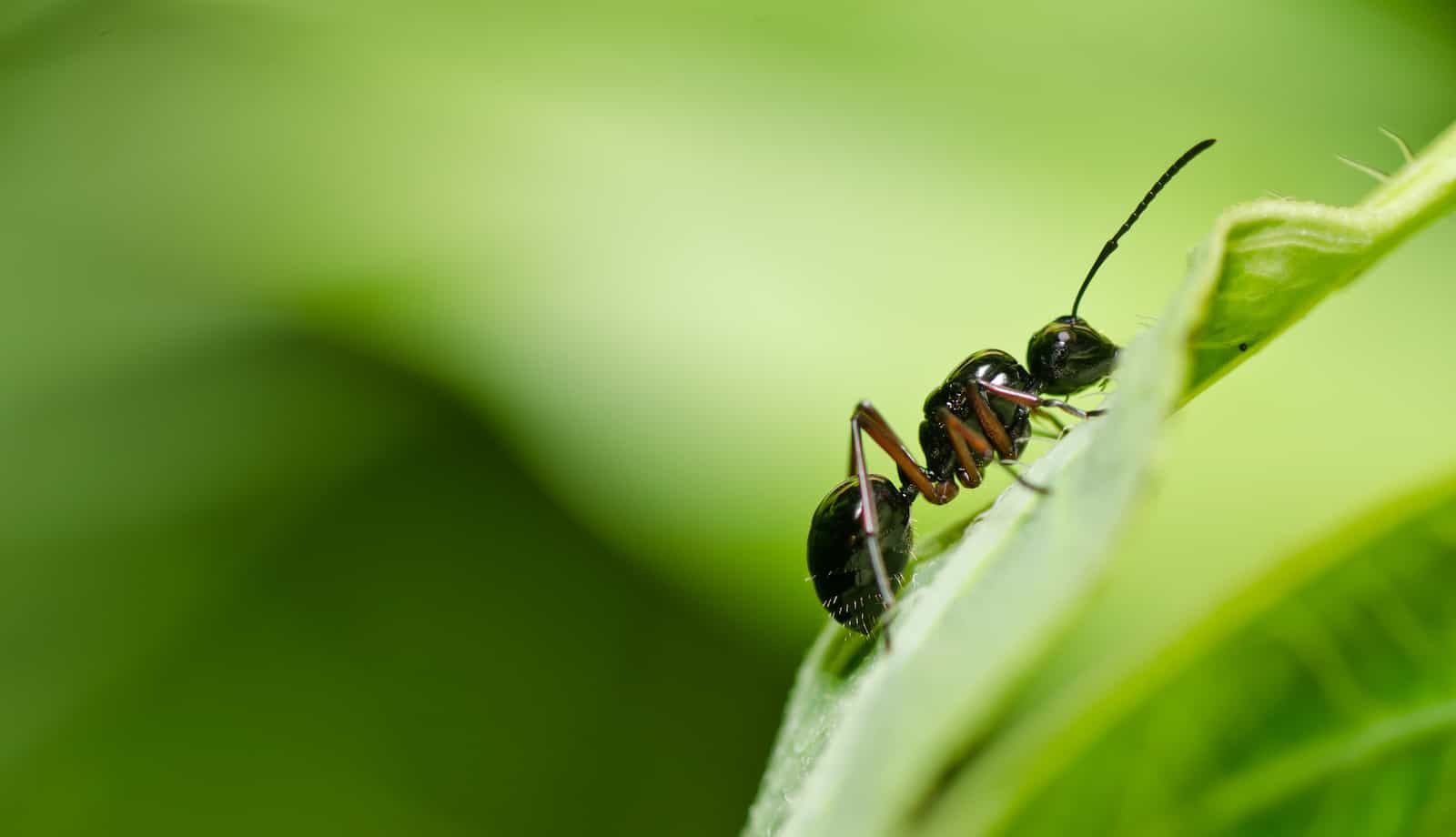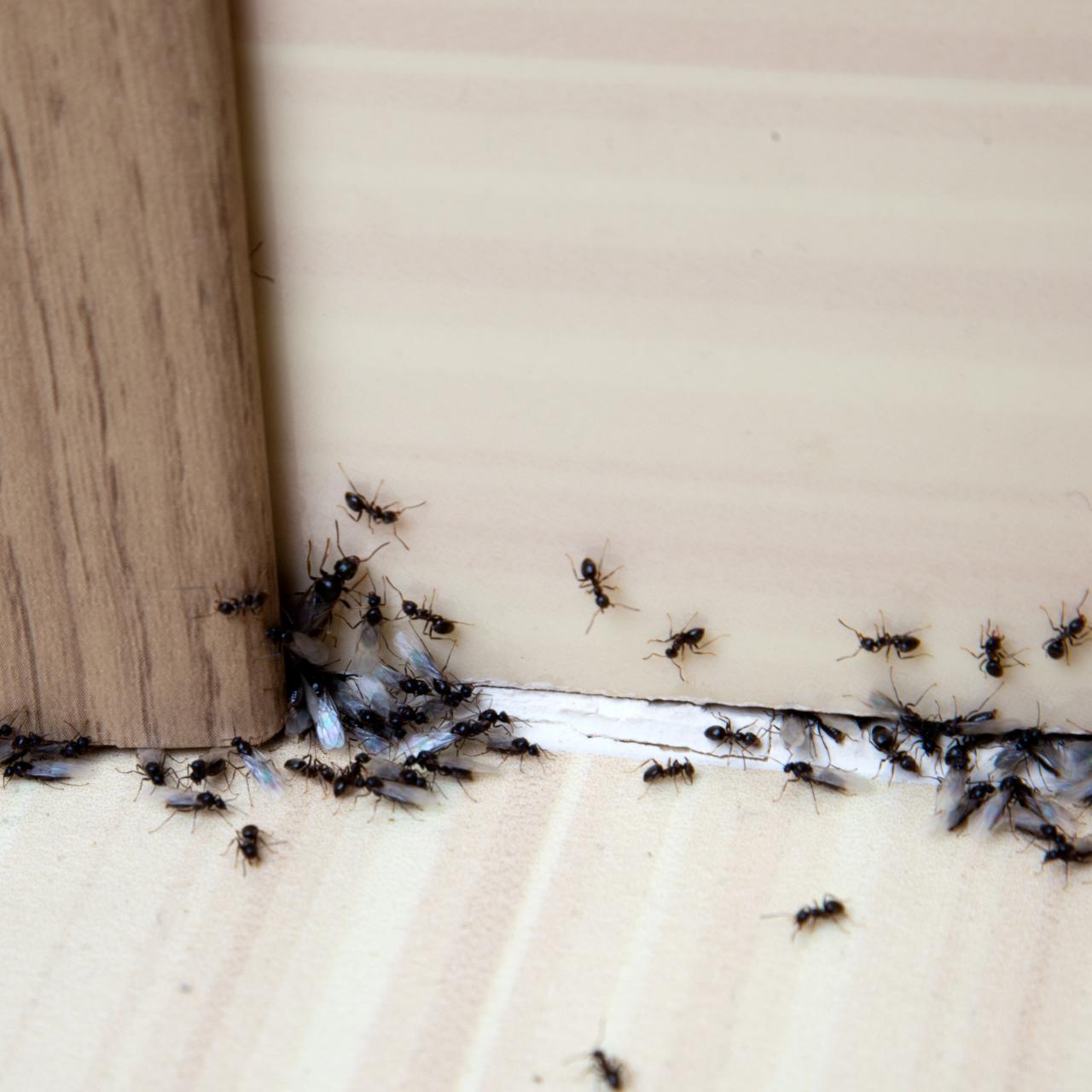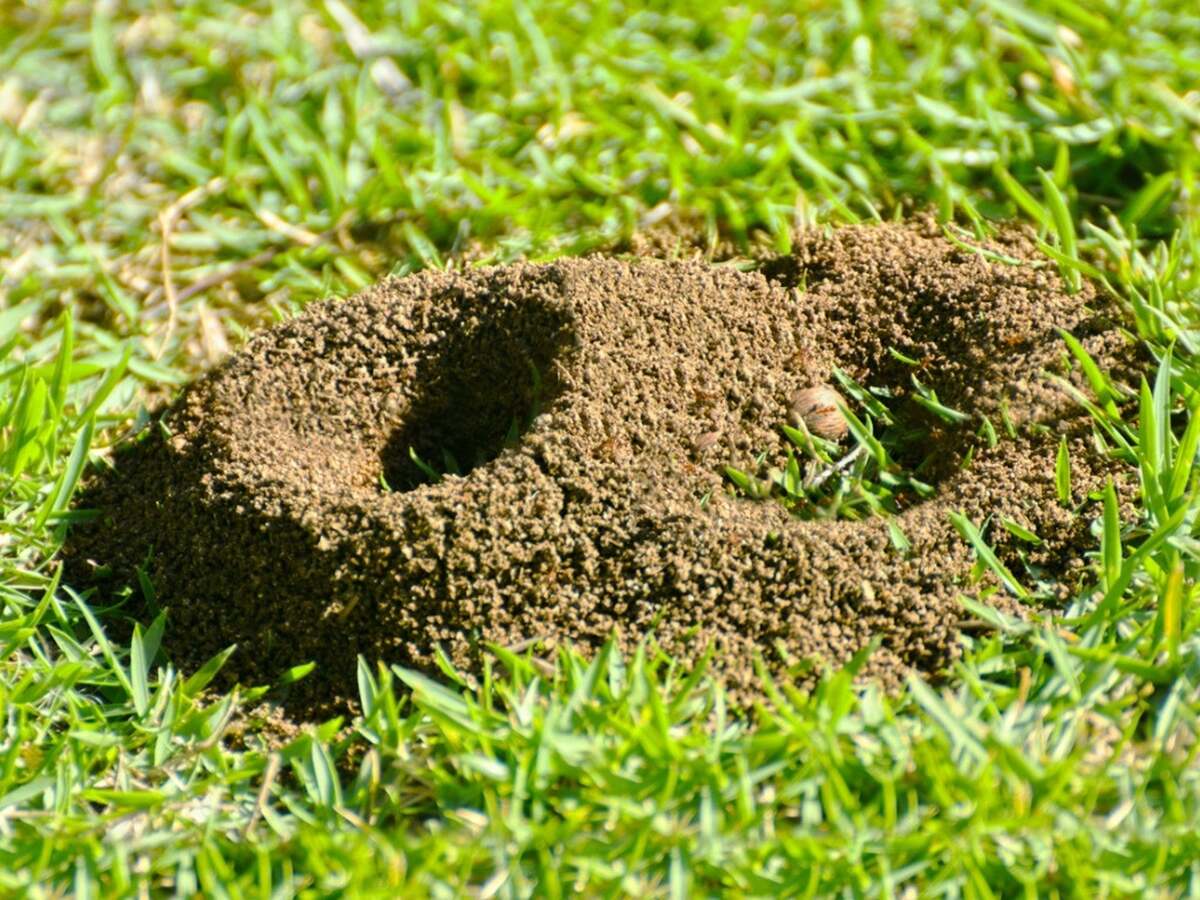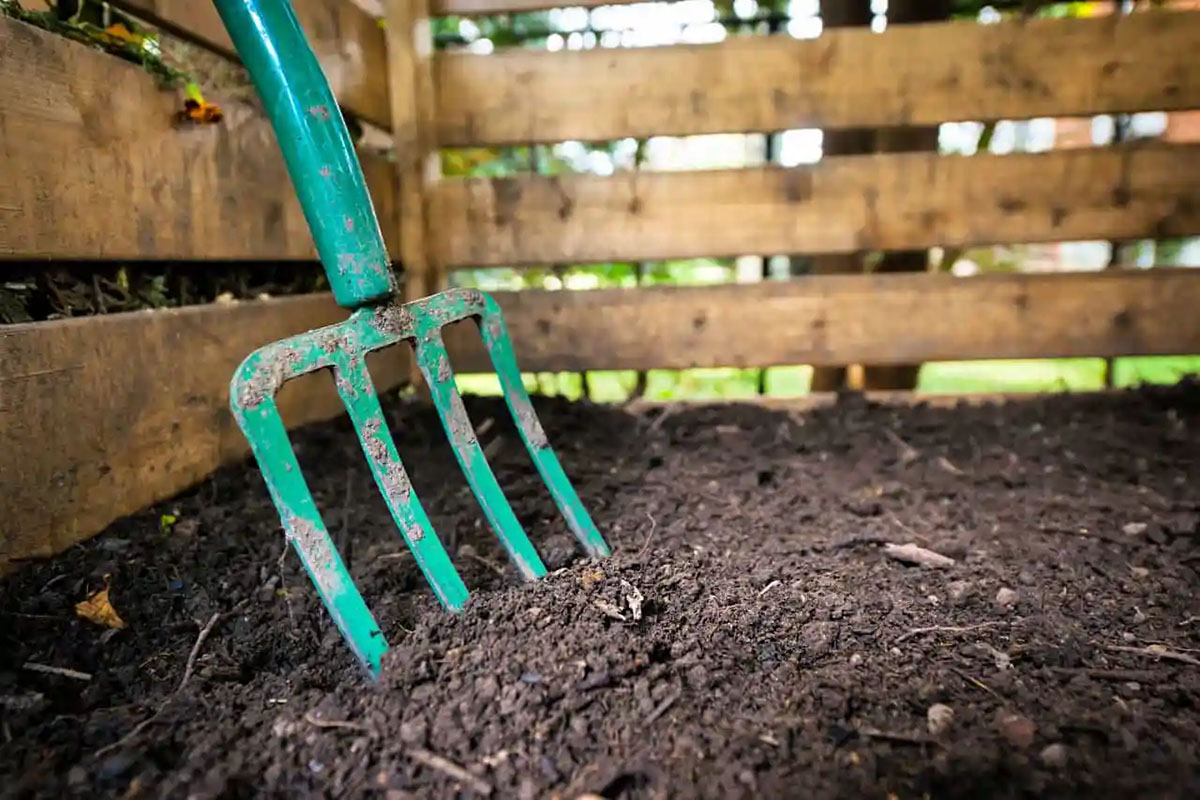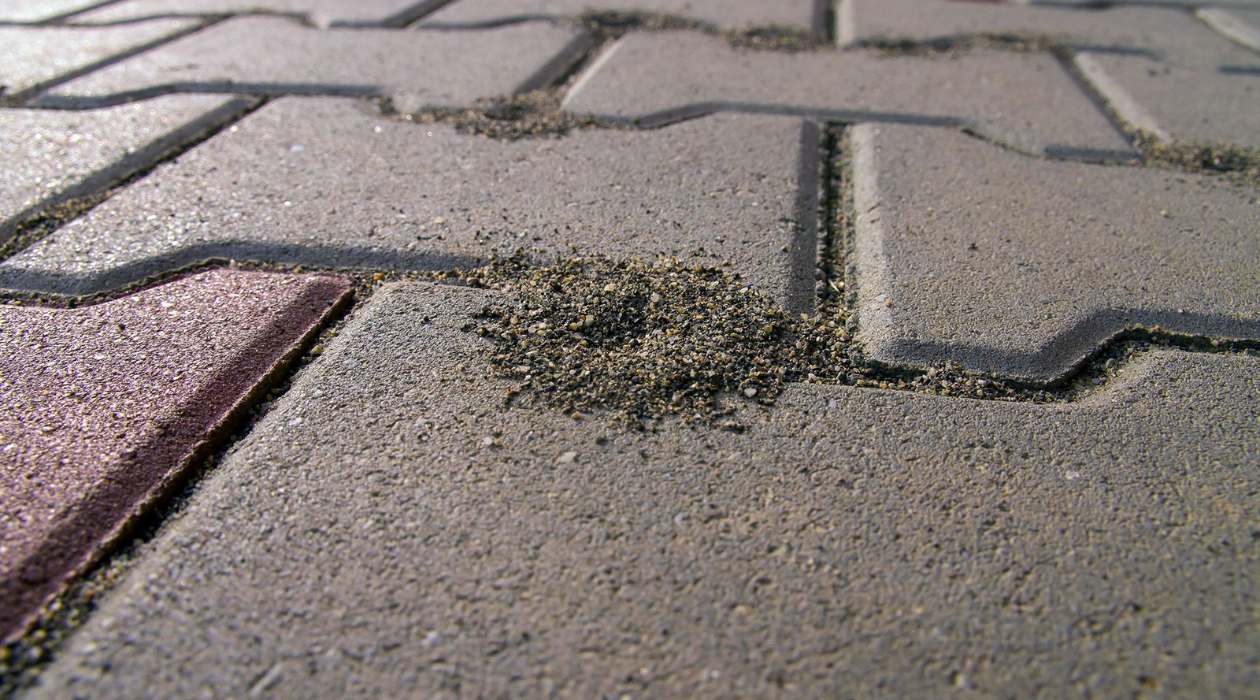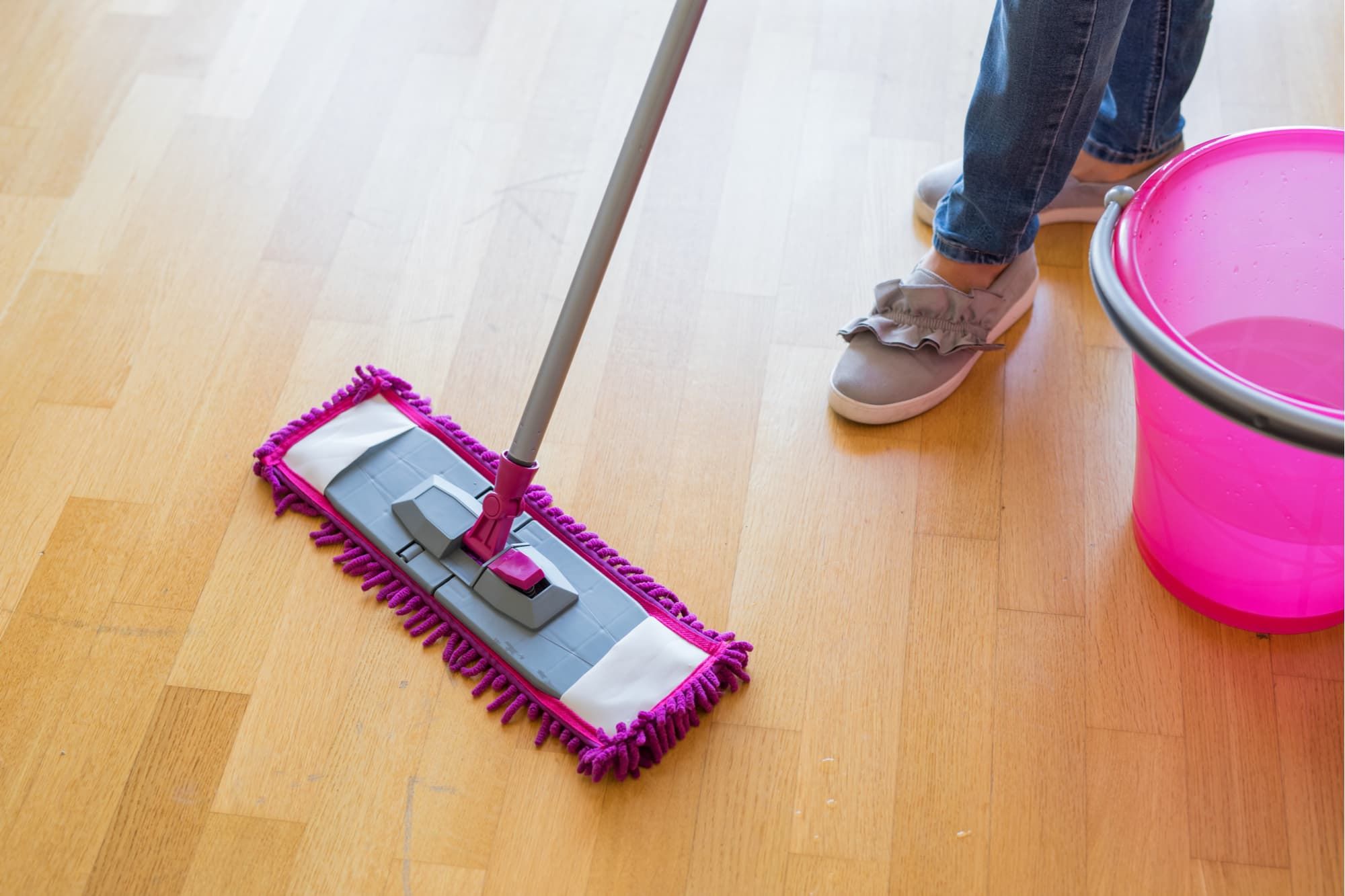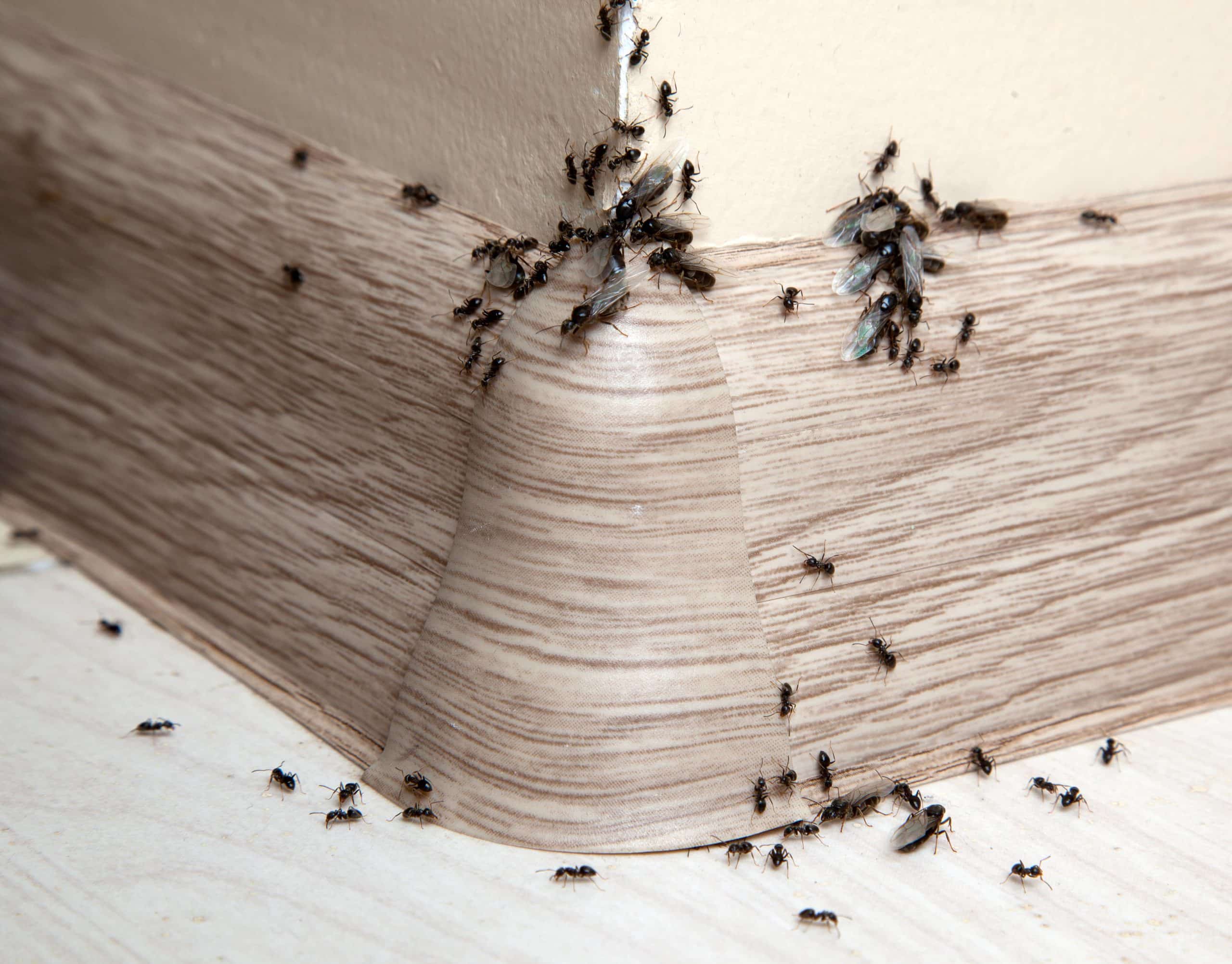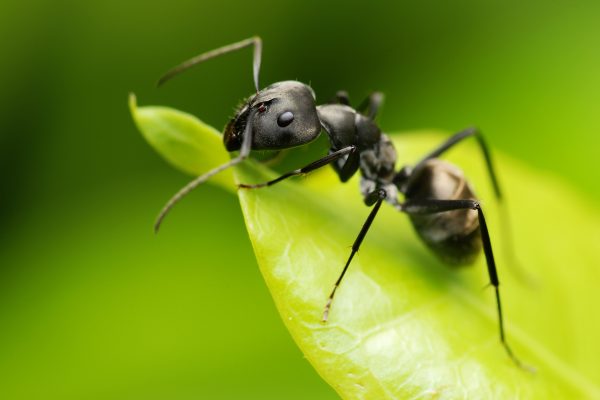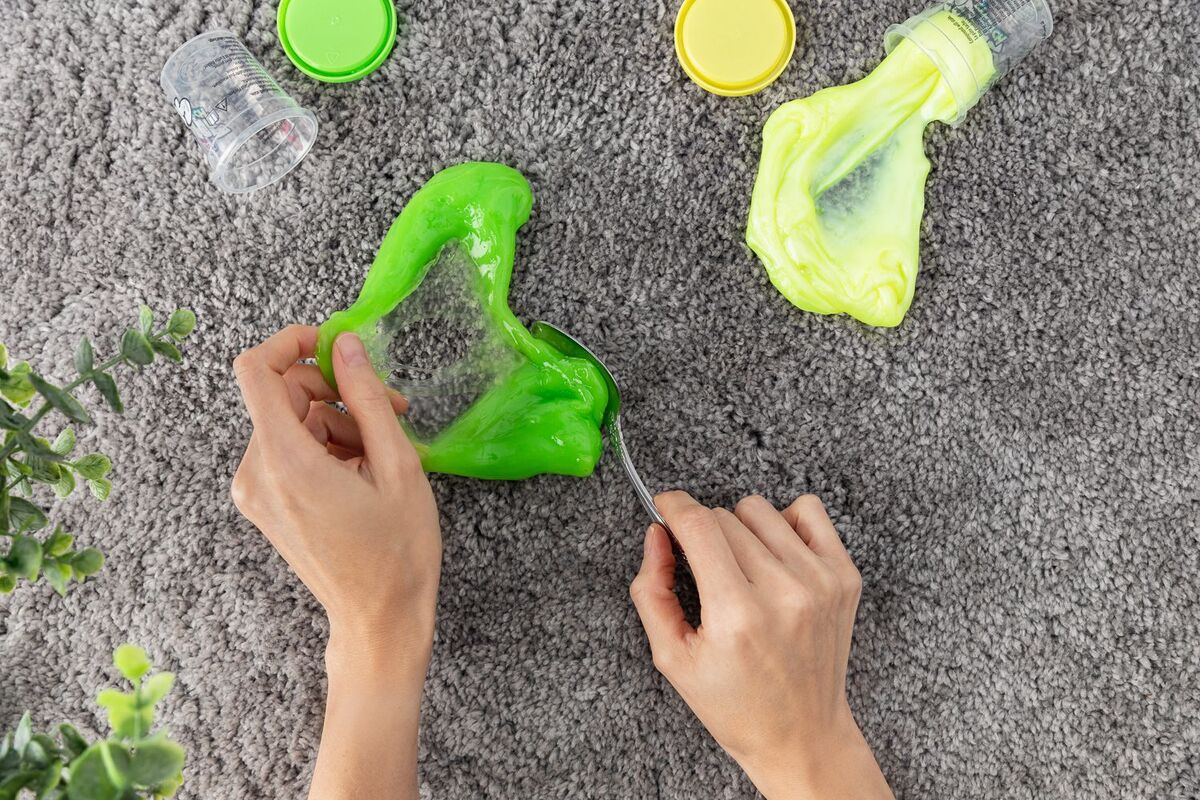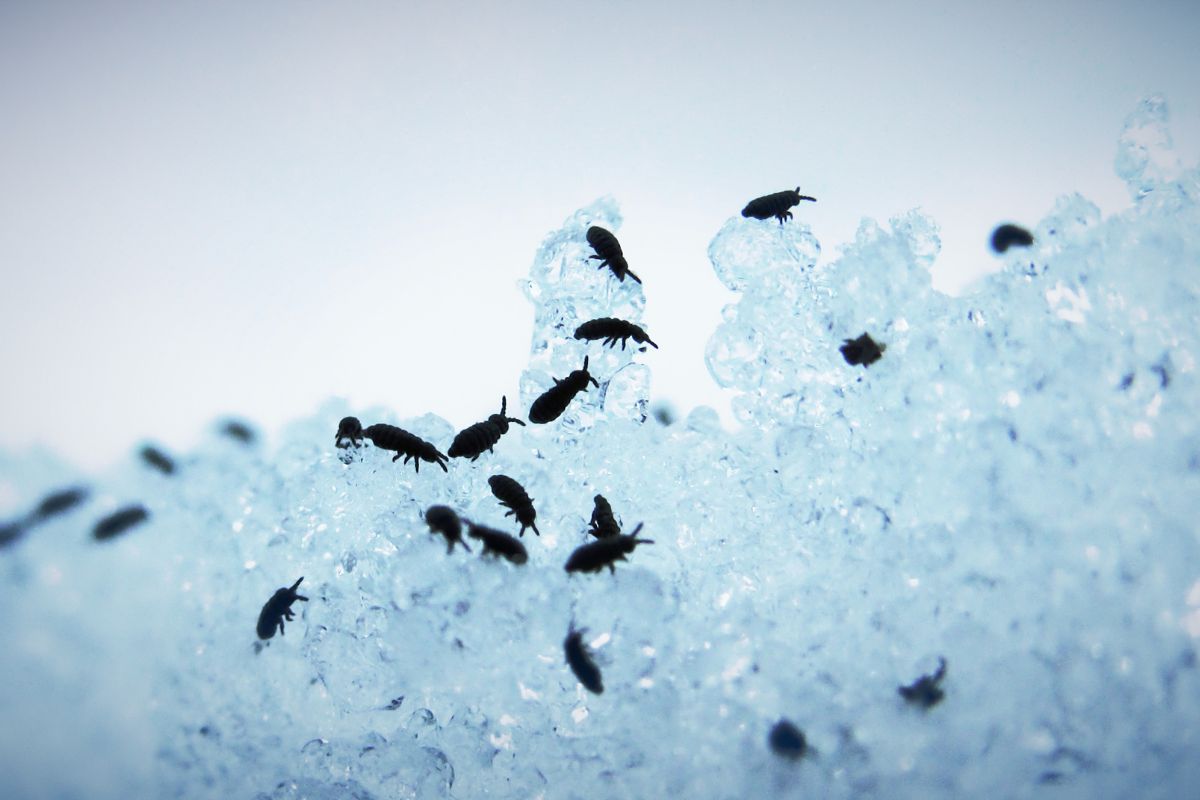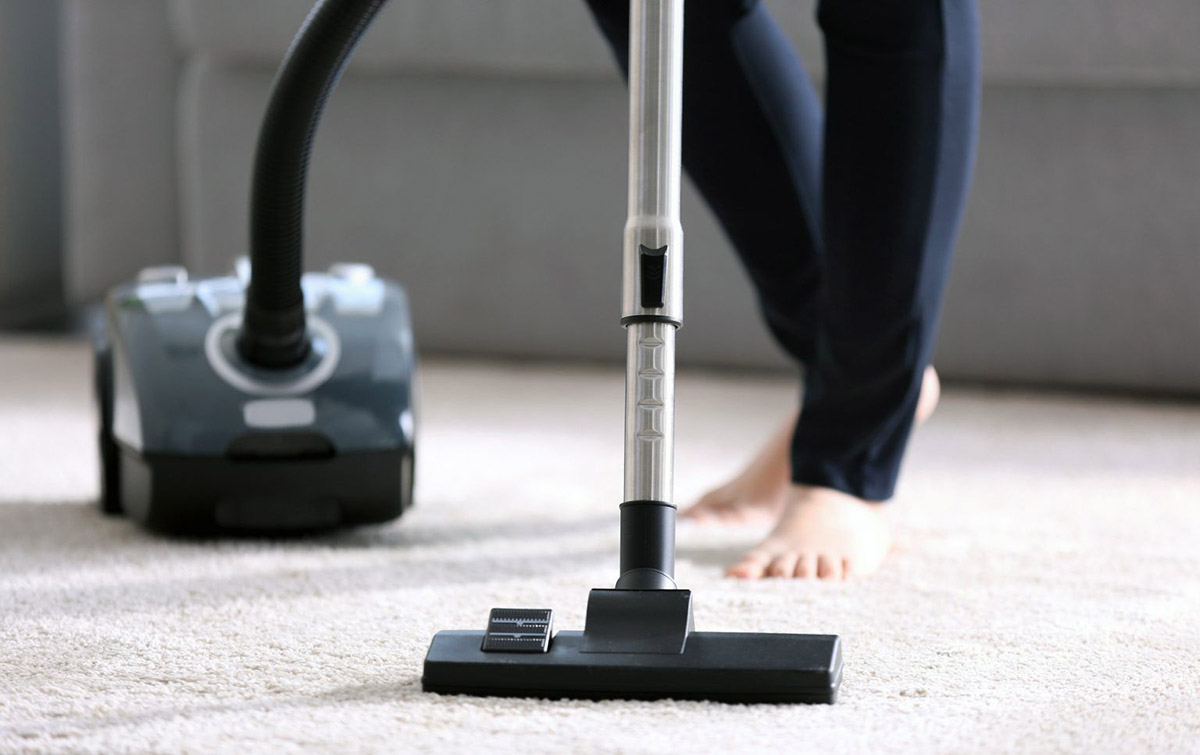

Articles
How To Get Rid Of Ants From The Carpet
Modified: May 6, 2024
Looking for effective articles on how to get rid of ants from the carpet? Discover proven methods and solutions to eliminate ants from your carpet for good.
(Many of the links in this article redirect to a specific reviewed product. Your purchase of these products through affiliate links helps to generate commission for Storables.com, at no extra cost. Learn more)
Introduction
Ant infestations can be a pesky and frustrating problem, especially when they invade your carpets. Not only can these tiny creatures be a nuisance, but they can also cause damage to your carpet fibers and leave behind unsightly trails. If you’re dealing with an ant problem in your carpet, don’t fret! There are several effective methods you can try to get rid of ants and restore your carpets to their pristine condition.
Before we delve into the solutions, it’s important to understand why ants are attracted to carpets in the first place. Carpets provide ants with a warm and cozy environment to build their nests and forage for food. Additionally, food crumbs, spills, and pet dander that accumulate in carpets can attract ants seeking nourishment. Therefore, a properly cleaned and maintained carpet is essential in preventing ant infestations.
In this article, we will explore different methods to eradicate ants from your carpets. We will discuss natural remedies that harness the power of common household items, as well as chemical solutions and professional pest control options. We will also provide tips on cleaning and maintaining your carpets post-infestation to prevent future ant problems.
Keep in mind that while these methods have been proven effective, each situation may vary. It’s important to identify the type of ants you’re dealing with and choose the appropriate approach accordingly. Now, let’s dive into the world of ant eradication from carpets and say goodbye to those unwanted guests!
Key Takeaways:
- Say goodbye to unwanted ant invaders by understanding their attraction to carpets, identifying the type of ants, and implementing natural or chemical solutions for effective eradication.
- After eliminating ants, maintain a clean and ant-free environment by implementing regular carpet cleaning, sealing entry points, and avoiding food in carpeted areas.
Read more: How To Get Rid Of Ants On The Patio
Understanding the Ant Problem
Before we can effectively address an ant infestation in your carpets, it’s crucial to understand the nature of the problem. Ants are social insects that live in colonies and have a highly organized system of communication and cooperation. They are constantly searching for food, water, and shelter, which often leads them into our homes and, unfortunately, our carpets.
Ants are attracted to carpets for various reasons. They may be drawn to the crumbs and food particles that get trapped within the carpet fibers, creating a food source for them. Furthermore, ants can recognize the scent trails left behind by other ants, leading them to the same location repeatedly. Once they find a reliable food source in your carpets, they will continue to return, bringing back more ants with each trip.
It’s also important to note that different types of ants may infest your carpets. Some common household ants include carpenter ants, pavement ants, and odorous house ants. These ants vary in size, behavior, and preferred nesting locations. Understanding the specific type of ants infesting your carpets will help you determine the most effective approach to get rid of them.
In addition, it’s crucial to identify any underlying factors that may be contributing to the ant infestation. Are there cracks or gaps in your home’s foundation or walls that ants are using as entry points? Is there excess moisture attracting ants? By addressing these factors, you can take preventative measures to minimize future ant infestations.
Regular carpet cleaning and maintenance are essential in keeping ants at bay. Vacuuming your carpets frequently helps remove food particles and crumbs that may attract ants. Additionally, consider implementing a strict no-food policy in carpeted areas to reduce potential food sources for ants. Spills should be promptly cleaned and dried to prevent them from becoming attractive to ants.
In the next sections, we will explore various methods to eliminate ants from your carpets, ranging from natural remedies to chemical solutions and professional assistance. With a combination of preventative measures and targeted interventions, you can reclaim your carpets from unwanted ant invaders.
Identifying the Type of Ants
When dealing with an ant infestation in your carpets, it’s important to identify the specific type of ants you’re dealing with. Different types of ants have different behaviors and preferences, and understanding their characteristics can help you develop a more effective strategy for eradication.
Here are some common types of ants that may infest carpets:
- Carpenter Ants: Carpenter ants are larger ants that typically nest in wood. Although they don’t consume wood like termites do, they can cause structural damage to wooden elements of your home. If you notice large ants in your carpets, especially during the evening and night, there’s a possibility that you are dealing with carpenter ants.
- Pavement Ants: Pavement ants are small, brown ants that often build their nests under sidewalks, driveways, and, you guessed it, carpets. They are commonly found in urban areas and may infest carpets that are in close proximity to their outdoor nests.
- Odorous House Ants: Odorous house ants are small ants that emit a distinct odor when crushed, often described as a “rotten coconut” smell. They are attracted to sugary foods and can infest carpets where food spills or crumbs are present.
- Pharaoh Ants: Pharaoh ants are extremely small, pale yellow ants that can infest carpets and other areas of your home. They are known for their ability to rapidly multiply and establish multiple colonies in various locations.
- Fire Ants: Fire ants are aggressive ants that are known for their painful stings. While they are not commonly found indoors, there have been instances where fire ants have nested in carpets, especially in areas with warmer climates.
Identifying the specific type of ants will help you choose the most effective methods for elimination. Some ants may respond better to natural remedies, while others may require more intensive chemical treatments or professional assistance. If you are unsure about the type of ants infesting your carpets, consider reaching out to a pest control professional who can help with identification and recommend appropriate measures.
Now that we’ve discussed how to identify the type of ants infesting your carpets, let’s move on to the next section, where we will explore preventive measures to keep ants away from your carpets.
Why Ants Infest Carpets
Ants are resourceful creatures that can find their way into various areas of our homes, including carpets. Understanding why ants are attracted to and infest carpets can help us develop strategies to prevent their presence and ultimately eliminate them from our living spaces.
Here are some of the main reasons why ants infest carpets:
- Food Sources: Carpets can become a haven for food particles, crumbs, and spills. Ants have a keen sense of smell and are drawn to these potential food sources. Once they discover a carpet with an accessible food supply, they will frequently return to scavenge for nourishment.
- Warmth and Shelter: Carpets provide a warm and cozy environment for ants to build their nests and colonies. The fibers of the carpet offer insulation, making it an attractive place for ants to establish their homes.
- Scent Trails: Ants use chemical trails to communicate with each other and navigate their environment. Once an ant finds a reliable food source in your carpet, it will leave a scent trail for others to follow. This can result in a steady stream of ants making their way into your carpets.
- Moisture: Some ant species are attracted to moisture. Carpets that have retained water from spills or leaks can create a favorable environment for these moisture-seeking ants. If your carpet is consistently damp or if there are leaks in the vicinity, it can contribute to ant infestation.
- Accidental Entry: Sometimes, ant infestations in carpets can occur due to accidental entry through cracks, gaps, or openings in the walls or floor. Ants can easily venture into your home, and if they discover a comfortable environment in your carpets, they may decide to make it their new dwelling.
It’s important to address these factors to prevent ants from infesting your carpets. Regular cleaning and maintenance, such as vacuuming, can help remove food particles and crumbs that attract ants. Additionally, prompt attention to spills and leaks can prevent moisture buildup, making your carpets less enticing to these unwanted guests.
In the next sections, we will explore effective measures for preventing ant infestations in carpets and various methods to eliminate ants if they have already invaded your living space.
Prevention Measures for Ants in Carpets
Preventing ant infestations in your carpets is the key to maintaining a clean and pest-free home. By implementing a few preventive measures, you can significantly reduce the chances of ants making their way into your carpets. Here are some effective prevention tips:
- Keep your carpets clean: Regularly vacuum your carpets to remove food particles, crumbs, and other debris that may attract ants. Pay special attention to areas where food is often consumed, such as dining rooms or living spaces.
- Wipe up spills promptly: Clean up spills as soon as they occur to prevent them from seeping into the carpet fibers. Even small amounts of food or liquid can lure ants into your carpets.
- Seal entry points: Inspect your home for cracks, gaps, or openings that ants can use as entry points. Seal these openings using caulk or another appropriate sealant to prevent ants from accessing your living space.
- Store food properly: Keep all food stored in airtight containers to minimize odors and prevent ants from being attracted to your pantry. This includes pet food as well, which should be sealed tightly when not in use.
- Eliminate moisture: Repair any leaks or fix plumbing issues that may be causing excess moisture in and around your carpeted areas. Ants are often attracted to moist environments, so keeping your carpets dry will make them less desirable to these pests.
- Use ant deterrents: Consider using natural ant deterrents around your carpets, such as sprinkling cinnamon, peppermint oil, or vinegar near entry points or areas prone to ant activity. Ants dislike the strong scents of these substances and may be discouraged from entering your carpets.
- Trim vegetation: If you have foliage or plants near your home, keep them well-trimmed and away from the foundation. Overhanging branches or shrubs touching your home can provide a bridge for ants to access your carpets.
- Consult a professional: If you’re experiencing persistent ant problems despite your best efforts, it may be time to seek the assistance of a pest control professional. They can assess your specific situation, identify the source of the infestation, and provide targeted solutions to eliminate the ant problem.
By implementing these preventive measures, you can reduce the likelihood of ants infesting your carpets. However, if you’re already dealing with an ant infestation, don’t worry. In the next sections, we will explore natural remedies, chemical solutions, and professional pest control options to help you eliminate ants from your carpets and restore cleanliness to your home.
Sprinkle a mixture of equal parts salt and baking soda on the affected area of the carpet. Leave it for a few hours, then vacuum it up. The mixture will help to dehydrate and repel the ants.
Read more: How To Get Rid Of Ants On Porch
Natural Remedies for Ant Control
If you prefer to use natural methods to control ants in your carpets, there are several safe and effective remedies you can try. These natural solutions can help deter ants and disrupt their trails, ultimately reducing and eliminating their presence. Here are some popular natural remedies for ant control:
- Vinegar: Ants dislike the strong scent of vinegar. Mix equal parts of white vinegar and water in a spray bottle and apply it to areas where ants are present or where you suspect they may enter your carpets. Repeat this process regularly to discourage ants from invading your carpeted areas.
- Citrus Peels: Save your citrus peels, such as orange or lemon peels, and scatter them around the perimeter of your carpets. Ants are repelled by the acidity of citrus, making it an effective natural deterrent.
- Cucumber: Place slices of cucumber near areas where ants are entering or near your carpets. Like citrus, the aroma of cucumber repels ants and can help discourage them from infesting your carpets.
- Baking Soda and Powdered Sugar: Mix equal parts of baking soda and powdered sugar and place the mixture in areas where ants are present. The powdered sugar acts as a bait to attract the ants, while the baking soda disrupts their digestive system when consumed, ultimately killing them. Be cautious when using this method if you have pets or small children, as it involves the use of powdered sugar.
- Cinnamon: Ants detest the scent of cinnamon. Sprinkle cinnamon powder around your carpets or create a barrier near entry points to deter ants from crossing. Additionally, you can mix cinnamon powder with water to create a paste and apply it in areas where ants are present.
- Pet-Friendly Options: If you have pets at home, it’s important to opt for pet-friendly natural remedies. Some options include using diatomaceous earth (food-grade) or creating a barrier with coffee grounds or mint leaves.
- Essential Oils: Certain essential oils, such as peppermint oil, tea tree oil, or lavender oil, have strong aromas that ants dislike. Dilute a few drops of your chosen oil with water and spray it in areas where ants are present or along their entry paths. You can also place cotton balls soaked in these oils near your carpets.
- Borax: Borax is a natural mineral that can be used to control ants. Mix equal parts of borax and powdered sugar and place it in areas where ants are active. The ants will be attracted to the mixture but will eventually ingest the borax, which is toxic to them. Be cautious when using borax, especially if you have pets or small children, and keep it out of their reach.
Remember, while these natural remedies can be effective, they might not completely eliminate an extensive or persistent ant infestation. If you’re dealing with a severe ant problem or if natural remedies aren’t providing satisfactory results, consider exploring chemical solutions or seeking professional pest control assistance.
In the next section, we will discuss chemical solutions for ant removal, providing you with additional options to tackle ant infestations in your carpets.
Chemical Solutions for Ant Removal
If natural remedies have not been effective in removing ants from your carpets, or if you’re dealing with a more severe or persistent infestation, you may consider using chemical solutions to control and eliminate ants. Chemical treatments can provide a more targeted and potent approach to ant removal. Here are some chemical solutions commonly used for ant control:
- Ant Bait Stations: Ant bait stations contain a sweet substance mixed with insecticide. Ants are attracted to the bait and carry it back to their colony, where it spreads and eliminates other ants. Place the bait stations near areas where ants are active, but keep them out of reach of children and pets.
- Ant Sprays: Ant sprays are designed to kill ants on contact. They often contain synthetic pyrethroids or similar chemicals. Spray the affected areas of your carpet directly, focusing on ant trails and entry points. Follow the instructions carefully, and ensure adequate ventilation when using sprays indoors.
- Ant Dust: Ant dust is a powdery insecticide that can be applied to cracks, crevices, and areas where ants are entering your living space. It can provide long-lasting residual control and is effective for hard-to-reach areas. Follow the manufacturer’s instructions for proper application and safety precautions.
- Granular Ant Killer: Granular ant killers are applied to the outdoor areas surrounding your home, creating a barrier against ants. The granules release insecticide when ants come into contact with them, controlling the infestation at its source. Follow the instructions for application and keep away from children and pets.
- Professional Pest Control Treatments: For severe or persistent ant problems, it may be necessary to enlist the help of a professional pest control service. Pest control professionals have access to a range of effective chemical treatments and can create a tailored plan to address your specific ant infestation. They will implement treatments safely and effectively, minimizing any potential risks.
When using chemical solutions, always read and follow the instructions provided by the manufacturer. Take necessary precautions to protect yourself and others, such as wearing gloves or a mask when applying the chemicals. Keep in mind that some chemical treatments may require multiple applications to achieve optimal results.
It’s important to note that while chemical solutions can be effective in eliminating ants, they may also have an impact on the environment. Consider the potential risks and weigh them against your need for ant control. If you have concerns, consult with a pest control professional who can offer guidance and alternative solutions.
In the next section, we will discuss professional pest control options for handling ant infestations in your carpets.
Professional Pest Control Options
When dealing with a persistent or severe ant infestation in your carpets, it may be necessary to seek professional pest control services. Pest control professionals have the expertise, experience, and specialized tools to effectively eradicate ants and prevent future infestations. Here are some professional pest control options to consider:
- Inspection and Assessment: A pest control professional will conduct a thorough inspection of your property, including your carpets, to identify the extent of the ant infestation and any contributing factors. They will assess the type of ants present and their behavior to develop a targeted treatment plan.
- Integrated Pest Management (IPM): IPM is an approach that focuses on using a combination of strategies to manage pests, with minimal impact on the environment. Pest control professionals employing IPM will utilize a variety of methods such as physical barriers, exclusion techniques, targeted treatments, and ongoing monitoring to control ant infestations in your carpets.
- Customized Treatment Plan: Based on their assessment, professionals will create a tailored treatment plan for your specific ant infestation. This may include a combination of chemical treatments, bait stations, dusts, and other effective methods to eliminate ants from your carpets and prevent their return.
- Safe Application of Chemicals: Pest control professionals have the knowledge and training to apply chemical treatments safely and effectively. They will follow industry standards and guidelines to minimize any risks to you, your family, and pets. They can also advise you on any necessary precautions or temporary evacuation measures during the treatment process.
- Long-Term Prevention: Pest control professionals not only focus on eliminating the current ant infestation but also provide recommendations on long-term prevention. They can offer guidance on maintaining a clean environment, sealing entry points, and implementing proactive measures to minimize the chances of future ant infestations in your carpets.
- Follow-up Services: Professional pest control companies often offer follow-up services to ensure the effectiveness of the treatment and address any lingering ant issues. They may schedule periodic visits to monitor and maintain the pest-free condition of your carpets.
By hiring a professional pest control service, you can have peace of mind knowing that experts are handling your ant infestation. They will take appropriate measures to eliminate the ants while considering the safety of your family and the environment.
When choosing a pest control company, do your research and select a reputable and licensed provider. Look for companies with positive customer reviews, industry certifications, and a commitment to using environmentally friendly practices.
In the next section, we will discuss how to clean and maintain your carpets after an ant infestation.
Cleaning and Maintaining the Carpet After Ant Infestation
After successfully eliminating ants from your carpets, it’s important to take steps to clean and maintain them to prevent future infestations. Here are some essential tips for cleaning and maintaining your carpets after an ant infestation:
- Vacuum Thoroughly: Vacuum your carpets thoroughly to remove any remaining ants, debris, or eggs. Pay special attention to areas where ants were most active, such as entry points or trails. Dispose of the vacuum bag or empty the canister outside to prevent any remaining ants from re-entering your living space.
- Steam Cleaning: Consider steam cleaning your carpets to eliminate any lingering odors and potential allergens. Steam cleaning can also remove any stains left behind by the ant infestation. Follow the manufacturer’s instructions for operating the steam cleaner and ensure that your carpets are thoroughly dry afterward to prevent moisture-related issues.
- Spot Cleaning: If there are any visible stains left behind by the ants, treat them with gentle carpet stain removers or natural solutions. Avoid using harsh chemicals that can damage your carpets. Blot the stains gently rather than rubbing them to prevent spreading or pushing the stains further into the carpet fibers.
- Regular Maintenance: Implement a regular carpet maintenance routine to keep your carpets clean and minimize the chances of future ant infestations. This includes regular vacuuming at least once a week, promptly addressing any spills or stains, and periodic deep cleaning as needed.
- Seal Cracks and Crevices: Inspect your home’s foundation, walls, and flooring for any cracks, gaps, or openings that ants can use as entry points. Seal them with caulk or another suitable material to prevent ants from re-infesting your carpets.
- Avoid Food in Carpets: Maintain a strict policy of no food or beverages in carpeted areas to minimize attracting ants. Encourage family members and guests to consume food in designated areas like the kitchen or dining room, where spills can be easily cleaned and controlled.
- Professional Carpet Cleaning: Consider scheduling a professional carpet cleaning service at regular intervals. Professional cleanings can help remove accumulated dirt, debris, and potential ant attractants that may be embedded deep within the carpet fibers.
By incorporating these cleaning and maintenance practices into your routine, you can maintain a clean and ant-free environment for your carpets. Regular upkeep will also help extend the lifespan of your carpets and keep them looking fresh and inviting.
Remember, prevention is key. Continuously implement preventive measures, such as maintaining proper cleanliness, sealing entry points, and addressing any moisture issues promptly. By doing so, you can minimize the risk of future ant infestations and enjoy a clean, insect-free home.
Now that you know how to clean and maintain your carpets after an ant infestation, let’s conclude our article.
Read more: How To Get Rid Of Ants In Pantry
Conclusion
Dealing with an ant infestation in your carpets can be a frustrating and challenging experience. However, with the right knowledge and strategies, you can successfully eliminate ants and prevent them from returning. In this article, we have covered various aspects of ant control in carpets, from understanding the ant problem to identifying the type of ants and exploring prevention measures.
We discussed the reasons why ants infest carpets, including the availability of food sources, warmth and shelter, scent trails, moisture, and accidental entry. By addressing these factors, such as keeping carpets clean, sealing entry points, and managing moisture, you can reduce the chances of ant infestations in your carpets.
We also explored natural remedies for ant control, such as vinegar, citrus peels, cucumber, and essential oils. These natural solutions can help deter ants and disrupt their trails while minimizing the impact on the environment.
If natural remedies are not effective or if you’re dealing with a severe infestation, we discussed chemical solutions, including ant bait stations, sprays, dusts, and granular ant killers. Chemical treatments can provide a more targeted approach to ant elimination, but be sure to follow instructions carefully and consider the potential risks involved.
In cases where ant infestations persist or are extensive, professional pest control services can be a valuable option. Pest control professionals employ integrated pest management (IPM) techniques, customized treatment plans, and safe application of chemicals to effectively eradicate ants from your carpets and provide long-term prevention strategies.
After successfully eliminating ants from your carpets, it is crucial to implement proper cleaning and maintenance practices. This includes thorough vacuuming, steam cleaning, spot cleaning, regular maintenance, sealing cracks and crevices, and avoiding food in carpets. By incorporating these practices, you can keep your carpets clean, fresh, and less susceptible to future ant infestations.
In conclusion, by understanding the ant problem, employing preventive measures, utilizing natural remedies or chemical solutions when necessary, and maintaining proper carpet care, you can successfully eliminate ants from your carpets and create a clean, pest-free environment in your home.
Remember, if you’re uncertain about the severity of the ant infestation or if your efforts are not yielding satisfactory results, it’s always wise to seek the help of a professional pest control service. They have the expertise and knowledge to handle ant problems effectively and efficiently.
Now that you’re equipped with knowledge and actionable solutions, it’s time to take control of the ant infestation in your carpets. Say goodbye to those unwanted guests and hello to a clean and comfortable living space!
Now that you've tackled ants in your carpet, don't stop there! Keep your home pristine with our guide on effective carpet cleaning, ensuring your floors look as good as new. Facing other pesky intruders? Learn foolproof pest control strategies to rid your pantry of moths. And for those looking to spruce up their kitchen, we've got top-notch cleaning tips to refresh every nook of your refrigerator. Dive into these articles for more invaluable advice on maintaining a clean and comfortable living space!
Frequently Asked Questions about How To Get Rid Of Ants From The Carpet
Was this page helpful?
At Storables.com, we guarantee accurate and reliable information. Our content, validated by Expert Board Contributors, is crafted following stringent Editorial Policies. We're committed to providing you with well-researched, expert-backed insights for all your informational needs.
